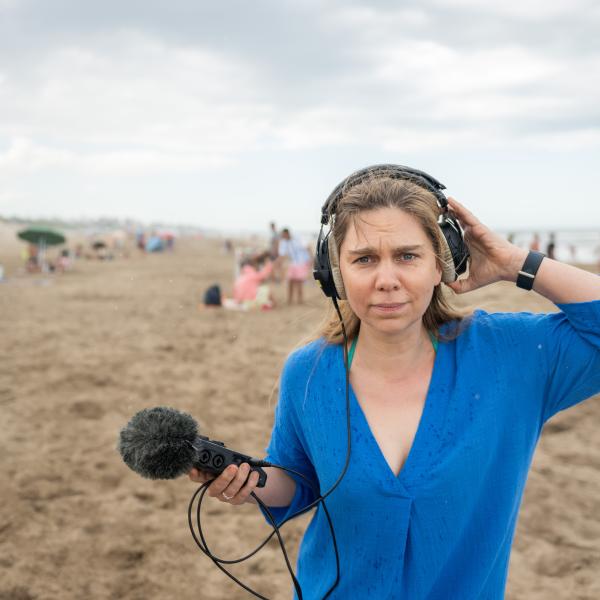(Not) Lost in Translation
A different language and culture can be almost insurmountable obstacles for many podcast listeners and makers. Unlike with movies or TV shows, for example, where you can work with subtitles. Or dubbing. Sure, there is such a thing as Radio Atlas, an online video platform that subtitles high-profile podcasts from all over the world into English. But that’s never going to get you a large audience.
So, how do you reach that large(r) audience? What are good practices? And what obstacles do podcast creators face? Bart Dobbelaere, podcast chief at De Standaard, brings together three creators to discuss: Danielle Emans, Eva Moeraert, and Pascal van Hulst.
Danielle was managing editor of Mondkapjesmiljonairs, a super-ambitious podcast about face mask fraud in - turns out it was a bit of a universal thing - the Netherlands, the UK, Germany, Italy, and Spain. Investigative journalists from all those countries co-created the five-part series. But instead of making everyone speak English (as Germans don’t understand Italian and Spaniards don’t speak Dutch), all the testimonies were dubbed flawlessly with the help of AI! So when you hear a Spanish witness talking in the Dutch version, you hear his natural voice, but in Dutch!
With The Margate Murders and Norden Morder, Pascal made a British and German version of his popular Dutch fictional podcast De Blankenberge Tapes. Oldskool remakes this time around, just like in Hollywood. The script was adapted, and local actors were recruited to reprise the original dialogues.
And then there is Eva, whose new podcast Oostende met één o is set to premiere at the festival. The series is about Ostende in Argentina - a coastal town once founded by a Belgian absinth merchant. That sounds like an excellent starting point for a podcast until you gradually realize that you’re making a podcast for a Dutch-speaking audience and most of your protagonists speak ... Spanish.
This talk is in Dutch.
